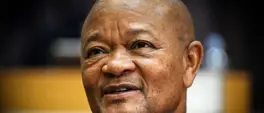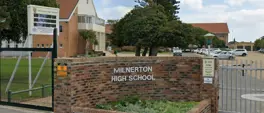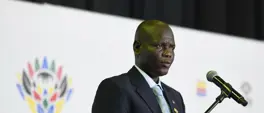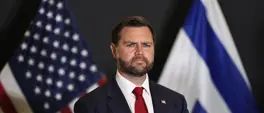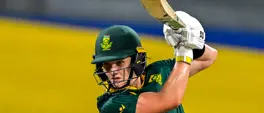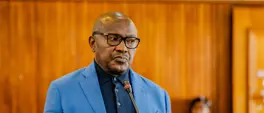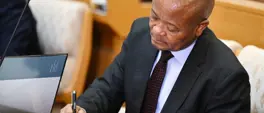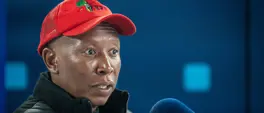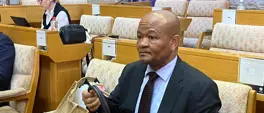MALAIKA MAHLATSI: Why young, ‘clever Blacks’ struggle to relate with the ANCYL
Malaika Mahlatsi
5 July 2023 | 10:00Since 2012, the twin tasks of the ANCYL have evolved from mobilising the youth behind the ANC, and championing the interests of young people of SA, to mobilising and rallying the youth behind factions of the ANC, and championing the interests of an old guard, writes Malaika Mahlatsi.
OPINION
In early 2013, I received a message from Floyd Shivambu requesting a meeting with me.
On the day of the meeting, I took a taxi from my home in Dobsonville to Orlando, where I found Shivambu and Julius Malema waiting for me. After a hearty traditional meal, we began discussions about the formation of a new movement that would rewrite history.
At the time, it did not have a name and it would be much later that a conclusion would be reached, following engagements with various individuals, that the movement would take the form of a political party.
At the meeting with Malema and Shivambu, I listened as they articulated the vision for a South Africa that until that moment, I did not dare imagine.
I had grown up in a family that was deeply committed to the Congress Movement. All members of my family were staunch supporters of the African National Congress (ANC) and component structures of the Mass Democratic Movement.
My late mother had been a member of the Congress of South African Students (COSAS) and the Soweto Youth Congress (SOYCO) in the 1980s, and later a member of the ANC Youth League (ANCYL) and the ANC. As a child, my mother used to take me with her to ANC meetings at Bapedi Hall in Zone 2 Meadowlands.
In the township of Meadowlands, where I was born and raised, being a supporter of the ANC was a birthright. It was part of our collective socialisation. And so, when Malema and Shivambu articulated the idea of a South Africa they wanted me to be part of building, in which the ANC was not a governing party, it sounded both tantalising and unimaginable.
Unimaginable, because my consciousness had never entertained the idea of the ANC being out of power. And tantalising, because such an idea promised to fashion a higher civilisation. And so, I agreed to be part of this movement – to invest my intellectual resources into mobilising other young people to own the idea of what would later become the Economic Freedom Fighters (EFF).
By the time the EFF was registered as a political party, I was no longer a part of it. In fact, I was working at the harmonised elections in Zimbabwe when I learned that the party had been registered with the Electoral Commission of South Africa.
But even then, as I nursed a wound that had been left by the souring of relations between Malema, Shivambu and I, I never ceased to believe in the idea of the EFF. The perilous state of our country, at whose centre was the glacial pace of transformation, was enough to convince me that the EFF was an idea whose time had come.
Events that would take place in the following years, popular struggles expressed through sustained student protests in higher learning institutions and the intensification of community protests, gave legitimacy to the necessity of the existence of the EFF.
And yet, even at that time, many around me often asked why, given that Malema and Shivambu were products of the ANCYL, and the ideas that they were pursuing in the EFF gestated in the organisation, I could not find a home there. After all, I was only 21 years old when the EFF was founded a decade ago – a ripe age to become a Young Lion.
The ANCYL that Malema left was a shadow of its former self. The organisation had once been the voice of young people like me – Black working-class youth who had been hurled at the margins by a capitalist system that dehumanises and decivilises.
It had fought militantly, organising not only on the streets, but winning the battle of ideas in a conservative and backward polity that was irritated by new ideas from young people. In the wake of Malema’s departure, the ANCYL became uninspiring in both form and substance. And for years to come, it would find itself battling an existential crisis.
The historic mission of the ANCYL, or what is commonly referred to as its twin tasks, is to mobilise and rally the youth behind the ANC, and to champion the interests of young people of South Africa. And yet, since 2012, the twin tasks of the ANCYL have evolved to mobilising and rallying the youth behind factions of the ANC, and championing the interests of an old guard that has always been contemptuous of young people of South Africa.
The disastrous administration of Collen Maine, the last elected ANCYL president, before the recent election of Collen Malatji, is the evidence.
And since Maine’s election eight years ago, successive National Youth Task Teams have been embroiled in never-ending internal battles that have their roots in ANC factional battles and in the quest for personal accumulation. As I followed developments of the 26th ANCYL National Congress this past weekend, I was struck by the depths of philistinism that continue to consume the organisation.
Every candidate and delegate that I spoke to, every interview I watched, centred on contentions about the running of the congress. Not a single idea was articulated.
The congress concluded without breaking into commissions to deliberate on important political questions about the state and future of youth in a South Africa that is deteriorating at an alarming rate.
Even the road to the congress was paved with discourses on slates, with little attempt made at pitching debates about how the political future of our country should be re-imagined.
“Economic freedom or death”, militant as it may sound, is not an intellectual idea, nor does it hold any contextual value for a South African youth that has been forced into a state of soporification. I had hoped the ANCYL congress would capture my imagination, just as Malema and Floyd had 10 years ago.
I wanted to hear in the articulations of ANCYL members concrete ideas that could rally even those of us who are not members of the organisation. This did not happen.
And at the risk of sounding like a “clever Black”, to borrow the term from former president Jacob Zuma, that this did not happen is precisely why young people who are invested in the ideational space will struggle to relate with the ANCYL.
Malaika Mahlatsi is a geographer and researcher at the Institute of Pan-African Thought and Conversation. She is a PhD candidate at the University of Bayreuth, Germany.
Get the whole picture 💡
Take a look at the topic timeline for all related articles.
Trending News
More in Opinion

22 October 2025 06:36
JAMIL F. KHAN | 'Our queer community is not for sale': The fight to reclaim South Africa’s radical queer legacy
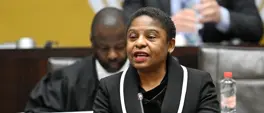
17 October 2025 12:54
MALAIKA MAHLATSI | Ntshavheni’s alarming constitutional delinquency, inhumanity and impunity

17 October 2025 12:42
CHRIS OXTOBY & JUDITH FEBRUARY | JSC interviews – Showing a challenging road ahead?



